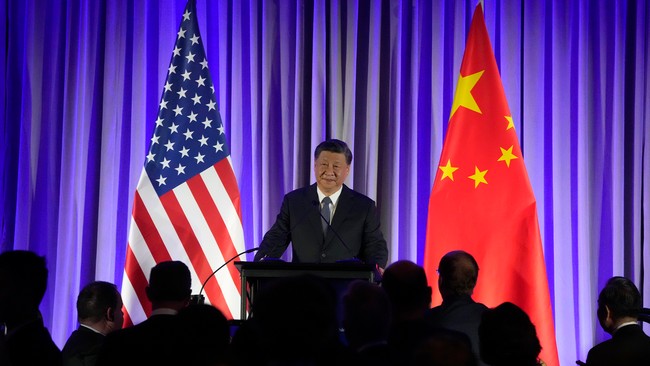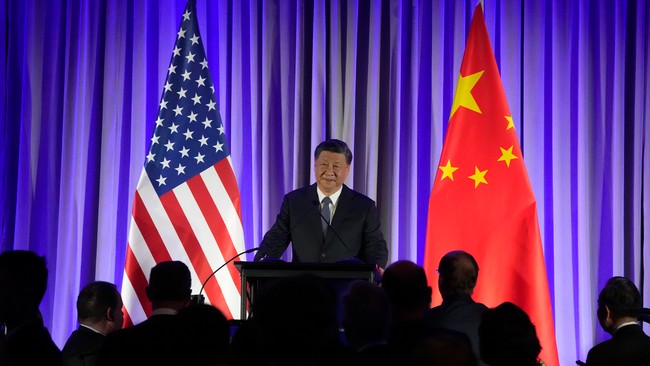
China has a death grip on our medical supplies and consequently our ability to survive. It is the sole manufacturer of one hundred medications we commonly use, including antibiotics and blood thinners, and is the largest supplier of nitrate gloves, masks, syringes and other medical equipment essential in hospitals.
China has threatened to weaponize its monopoly on these supplies to throw our hospitals into chaos, stress us in our death beds, and watch us suffer.
When your enemy issues a threat like that, believe it.
China’s state-run media publication, Xinhua, warned soon after the outbreak of COVID-19 that China might retaliate against Trump’s U.S. travel ban by banning the export of all medical products, adding that “the United States will fall into the hell of a new coronavirus pneumonia epidemic.”
Now, in the trade war with the United States, cutting off medical supplies is possibly China’s next move, and we are not ready.
On April 3, only one day after President Donald Trump initially hiked tariffs on Chinese goods, China hit back with a total suspension of exports of rare earth minerals and magnets, its other strategic monopoly besides medical supplies.
Rare earth minerals and magnets are essential to manufacture autos, Air Force fighter jets, drones, robots — basically the next generation of warfare materials. China’s move puts a stranglehold on these industries.
Unlike the tit-for-tat dance going on between the U.S. and its friendly trading partners over tariff levels, China’s cutting off exports is an act of raw economic warfare.
China is blocking the ability of the U.S. to get essential goods at any price. Today, it’s rare earth minerals. Tomorrow, possibly medicines and medical supplies.
Global free trade, with zero tariffs, is a goal the U.S. can pursue with friendly countries. But not with China, an adversary that aspires to global dominance.
India, the other chief supplier to the United States, relies largely on China for basic ingredients, per the Global Trade Research Initiative, an Indian think tank. With almost no other foreign sources for generic medications and medical supplies, the U.S. has no alternative but to produce these goods at home.
The first Trump administration saw that. Gary Cohn, former director of the National Economic Council, reportedly warned, “If you’re the Chinese and you really want to destroy us, just stop sending us antibiotics.”
In 2020, Trump invoked the Defense Production Act, setting a goal of producing a quarter to a third of gloves and other hospital supplies domestically.
But the Biden administration floundered in the execution. By 2022, the government had spent roughly $1 billion on half-finished factories to produce nitrate gloves without a single glove to show for it, a sad saga reported by America Affairs. In early 2022, the funding expired, and the Biden administration didn’t bother to request a renewal.
Dependence on China for gloves actually increased after 2020, despite the quality being so poor that double gloving is now routine in hospitals to compensate for frequent tearing.
Similarly, U.S. imports of finished Chinese pharmaceuticals and active ingredients soared after 2020, per the Atlantic Council, despite Biden paying lip service to reducing dependence.
The Strategic Active Pharmaceutical Ingredient Reserve, set up in 2020 to anticipate China cutting off access, was only 1% filled as of November 2024, per a report from American Compass trade think tank. That’s shocking negligence.
Last week’s clampdown on rare earth minerals is a wakeup call.
Congress needs to invest public funds or offer tax incentives to build medical manufacturing capacity. A bill offered last week by Sen. Tom Cotton (R-Ark.) does this.
The U.S. should slap hefty tariffs on China’s medications. Generic drug manufacturers here are more likely to invest in expansion if they know they won’t be blown away by cheap, Chinese competitors.
Shift the conversation in Washington, D.C., from shaving drug costs to ensuring access. Domestic manufacturing will cost more, and tariffs will add yet another layer of cost. But the key is to be able to get the drug you need — to prevent a heart attack or dissolve a blood clot — whether China is on the warpath or not.
China’s President Xi Jinping says “there are no winners in a trade war, or a tariff war.” That’s untrue. The U.S. appears poised to win reciprocal tariffs, or no tariffs, with its friendly trading partners. Meanwhile, China has shown its true colors, an adversary trying to bring its trading partners to their knees.
The U.S. has been warned and must act on it.
Betsy McCaughey is a former Lt. Governor of New York State and Chairman of the Committee to Reduce Infection Deaths at www.hospitalinfection.org. Follow her on Twitter @Betsy_McCaughey. To find out more about Betsy McCaughey and read features by other Creators Syndicate writers and cartoonists, visit the Creators Syndicate website at www.creators.com.







